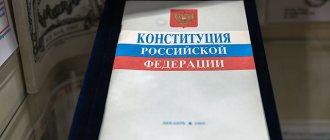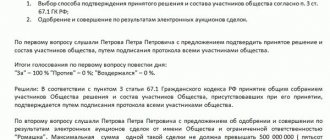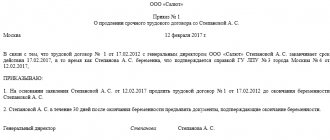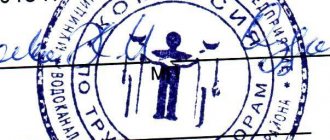Pensioners are a significant social stratum. In essence, this is a status recognized by the state, in which monetary compensation is provided for earnings lost as a result of the occurrence of certain life circumstances. This compensation is called a pension.
Despite the fact that the financial activity of pensioners is lower than people of the middle age group without specific health restrictions, nevertheless, pensioners are actively included in money circulation. No one is stopping them from taking out loans if necessary, or executing debt relationships against property collateral. For many, the status was awarded before retirement.
Features of bankruptcy of a pensioner
A pensioner is a citizen recognized in the appropriate status by the state. These standards are laid down within the framework of the Federal Law “On State Pension Provision in the Russian Federation” dated December 15, 2001 N 166-FZ. Pensioners in the Russian Federation include:
- Persons who have reached the age threshold specified by law.
- Persons with corresponding health limitations were, as a result, recognized as disabled by the relevant state commission.
- Persons who were dependent on an employed citizen and were left without a breadwinner as a result of his death.
- Persons who have achieved the appropriate length of service within the framework of the public service (including the armed forces (military pensioner), police, astronautics, federal bodies of the Investigative Committee, Ministry of Emergency Situations, FSB, others).
What are the consequences for a pensioner?
Due to the fact that for the normative definition there is no actual difference in the social status of the bankrupt, the consequences of declaring a pensioner bankrupt actually do not differ from the consequences of the standard nature of declaring an individual bankrupt. The regulatory framework is concentrated within the framework of Article 213.30 of the Federal Law “On Insolvency”. Consequences include:
- During the first five years after the end of the procedure, when applying to a credit institution, the bankrupt is obliged to notify the potential creditor of the fact of being declared bankrupt.
- Re-going through the bankruptcy procedure can be carried out only after five years from the date of completion of the relevant procedure.
- For the next three years, the debtor has no right to engage in business, head a business as a general director, or establish organizations. If we are talking about credit organizations, the duration of the ban is 10 years.
The remaining consequences relate to the very fact of passing. Thus, during the period of the procedure, transactions can be carried out by the debtor independently only on the condition that their size does not exceed 50 thousand rubles. All other transactions require the consent of the financial manager overseeing the specific bankruptcy case.
All account transactions are strictly recorded. The financial manager independently transfers the amount established by the court to support the life of the pensioner. Typically, it is the minimum subsistence level. However, at the special request of the debtor, this amount can be increased.
Consequences for retirees
After acquiring bankruptcy status, a pensioner is subject to many restrictions:
- ban on holding leadership and management positions;
- obligation to report previous bankruptcy status;
- a damaged credit history that closes the possibility of obtaining a profitable loan.
In addition, the court will not be able to help the pensioner if he again owes a large amount within the next 5 years. Repeated bankruptcy is possible only after the expiration of a 5-year moratorium.
What will happen to the pension?
During the process of restructuring and paying off the debt, the pensioner will face financial difficulties, since money from pension proceeds may be levied to pay off debts to creditors. However, it is impossible to recover amounts greater than would allow the debtor to lead a normal life. In other words, monthly pension income must be used to live on at least the pensioner’s subsistence level.
© 2021 zakon-dostupno.ru
- Related Posts
- How does an individual go bankrupt on loans?
- Is it possible to become an individual entrepreneur after bankruptcy of an individual?
- How to file bankruptcy for an individual on loans
Can they take away an apartment from a pensioner?
The apartment cannot be seized if it is the only suitable housing for the debtor and his family members. This condition is reflected in the Civil Procedure Code and the Federal Law “On Enforcement Proceedings”. The only exception to this rule is the presence of a collateral relationship with a creditor, when the collateral is an apartment. However, rarely does such a situation arise in relation to pensioners undergoing the procedure. They are extremely reluctant to cooperate in issuing loans, even secured by existing real estate.
If the pensioner owns other real estate, they may be confiscated for the purpose of sale to pay off the claims of the individual’s creditors.
How will the procedure affect relatives?
As a general rule, relatives are not subject to the procedure for declaring a citizen bankrupt. An exception is the introduction of a procedure for the sale of property in relation to the debtor. However, if property is subject to sale, which is considered common according to family and civil law, then property consequences will occur.
Thus, the following mechanism is assumed. A pensioner and his wife have two habitable apartments that were purchased as part of a joint household. In this case, the apartment will be included in the bankruptcy estate and sold as a result of open bidding. The spouse of a bankrupt who does not go through the procedure will receive compensation in the amount of 50 percent of the value of the sold property, seven percent will be received by the financial manager.
The remaining funds will be used to repay debts to creditors within the framework of priority established by law. There is no direct influence on other relatives, with the exception of cases of falsification of transactions to hide property from the claims of the creditor.
How much debt should there be?
The legislation does not establish a minimum threshold for applying to the Arbitration Court to declare oneself insolvent. The established amount of 500 thousand rubles relates to the provisions of the creditor. That is, the creditor has the right to initiate a procedure against the debtor if he has such a debt and a delay of 90 days. The debtor himself has the right to declare his financial insolvency immediately, after he becomes aware of the impossibility of fully meeting his obligations.
Grounds for declaring insolvency
There are general rules by which a person, in principle, has the right to apply to an arbitration court. The first is the presence of a cumulative arrears of more than 3 months. This is not necessarily a continuous period without payments. The second reason is that the total amount of all debts must reach 500 thousand rubles. Again, this could well be either one large loan or a dozen small ones.
Also important is the fact that the applicant does not own property, the sale of which at market value will be able to cover all debt obligations. If a person has, for example, a garage with a market value of 100 thousand rubles, and debts worth a million, then he is quite capable of going to court. But if he has a land plot worth two million rubles and one million rubles in debt, he will be denied arbitration. And in the course of ordinary civil proceedings, the plot will be arrested and subsequently confiscated, which will be sold for repayment. The rest of the money will go back to the borrower. Another important aspect of how to declare a pensioner bankrupt in front of a bank, to declare him insolvent is to not have open criminal prosecution for economic crimes. Otherwise, the procedure becomes simply a way to escape responsibility for compensation.
Read Imaginary and feigned transaction, what is it in simple words, consequences and differences
It is worth knowing that a debt of 500 thousand rubles is a custom, and not a strict norm. In other words, it is possible to go to arbitration even if you have a smaller debt. It’s just that this figure is required for the creditors to initiate the process. But still, the courts are unfriendly to applicants whose debts are small. And they often subject them to additional checks, trying to find intent.
Will bailiffs continue to withhold pensions?
From the moment a citizen is declared bankrupt and a procedure for the sale of property or restructuring is introduced against the debtor, all judicial enforcement proceedings are subject to termination.
Funds paid to a citizen must pass through a specialized account, which is under the control of the financial manager. The standard pension is included in the bankruptcy estate. If the amount of support received from the state is below the subsistence level (established within the framework of regional legislation), then the pension will be transferred to the pensioner’s final account in full, including the established allowances. Everything above this threshold will be used to pay off debts to creditors within the framework of a specific procedure. But this is already the responsibility of the financial manager.
Is it possible for a pensioner-guarantor to go bankrupt?
Surety is a fairly common practice in Russia. Banks are willing to issue loans for very large amounts if there are guarantors. But if the borrower is fired, or the business does not take off, the guarantor will have to answer the debt. What to do if the main debtor stops paying?
And pensioners can also write off debts through bankruptcy
Alas, there is only one way for them to admit their financial insolvency - through the court. Since they receive income in the form of pensions, MFCs do not accept applications from pensioners to undergo the simplified procedure. Therefore, you will first have to save up funds to pay for the services of a financial manager.
In this case, the following scenario is possible:
- The primary debtor files for bankruptcy.
- The bank is included in the register of creditors.
- The procedure is completed and the debts are written off.
- Next, the bank turns to the guarantor.
- The guarantor declares bankruptcy, and his debts are also written off.
Until the main debtor has declared bankruptcy, claims are not usually brought against the guarantors. However, if the debt of the main borrower is written off through the court, then the guarantor has no choice but to also go through the procedure if there is nothing to repay the loan with. Read more about recognizing the insolvency of a citizen with a guarantee here.
Get a debt relief plan
What pension will not be retained in bankruptcy?
Within the framework of paragraph 1 of Article 101 of the Federal Legislative Act “On Enforcement Proceedings,” a list of payments is established that cannot be recovered in civil proceedings. These include the following types of pensions:
- Survivor pensions paid from the federal budget.
- Payments to pensions in the event of the loss of a breadwinner from the budgets of the constituent entities of the Russian Federation.
- Insurance coverage for compulsory social insurance, taking into account a fixed payment to the insurance pension, increases in the fixed payment to the insurance pension, as well as funded pensions, urgent pension payments and temporary disability benefits.
- Amounts of compensation for the cost of travel to the place of treatment and back (including the accompanying person).
- Social benefit for funeral.
- Compensation payments in connection with the care of disabled citizens.
Other types of pensions, namely old-age and disability pensions, are officially considered the citizen’s income and this income can be levied on the basis of a writ of execution within the framework of enforcement proceedings.
A pensioner is bankrupt: is it possible?
How is the bankruptcy procedure for individuals going in 2021 Related article
The bankruptcy law makes no difference between a working person and someone receiving an old-age pension, length of service, or disability pension.
The bankruptcy of a pensioner proceeds like that of an ordinary individual - in court, the circumstances that led to bankruptcy are clarified, whether the debtor behaved in good faith, whether he deceived the banks when obtaining loans, whether he transferred the property to relatives.
If no abuse is detected, the loans are written off and the person is free.
How can you increase the size of your pension?
This requires the following grounds:
- the need to purchase medications, undergo the necessary treatment in the form of procedures, operations, manipulations;
- If the debtor has dependents, their maintenance will also be taken into account when calculating.
The legal mechanism is as follows. In the process of considering the issue of declaring a debtor bankrupt, the latter must file a corresponding petition. It is usually formalized in writing and supported by documentation confirming the facts stated. Sometimes such an application is made separately from the main hearing. In this case, a separate hearing is scheduled to consider the application submitted to the court.
Supporting documentation includes:
- Birth certificate of a minor child.
- Extract from sick leave, cards, expert opinion regarding the debtor’s health condition.
- Certificate of cost of medicines, prescription forms.
The bottom line is that, as part of the legal process to declare the debtor bankrupt, the required monthly maintenance is increased by separating this property from the bankruptcy estate.
What documents are needed to go through the procedure?
The main list of documents includes the following:
- An application to declare the debtor insolvent (bankrupt) to the Arbitration Court of the region where the pensioner lives.
- A copy inside the debtor's civil passport (non-residents cannot go through bankruptcy proceedings in the judicial system of the Russian Federation).
- A copy of the certificate with the individual taxpayer number.
- A green laminated card indicating the insurance number of an individual personal account with the Pension Fund (SNILS).
- Documents confirming the debtor's marital status (marriage certificate, death certificate of a spouse, divorce certificate, birth certificates of children (if they are dependent due to the minimum age threshold).
- Documentary evidence of existing debt to creditors (includes loan agreements, claims, receipts, court decisions, and other documents).
- A specific register of available creditors, indicating the amount of debt owed to each.
- Certificate of the amount of pension received.
- List of property owned by a pensioner.
- Receipts confirming payment of 300 rubles of state duty and replenishment of the court deposit by 25 thousand rubles as remuneration to the financial manager.
The pensioner can prepare this package of documents independently, or contact a specialist to receive qualified legal assistance. At least in terms of preparing the application, it is recommended to use this option. Many law firms offer various preferential terms for assistance to elderly people.
How much does bankruptcy procedure cost for a pensioner?
Advantages of bankruptcy for a pensioner
The most important advantage is maintaining the pensioner’s peace of mind while restoring creditworthiness. Employees of credit institutions, collection offices and representatives of the Federal Bailiff Service will stop harassing him.
There are also disadvantages. For the legislator himself, there is no difference between a pensioner and a representative of another social group when considering the issue of recognizing a citizen as financially insolvent. All features of the procedure are strictly regulated by law.
— How to choose a bankruptcy company?
— What property can be taken away and what property can be left in case of bankruptcy of a citizen?
— Bankruptcy procedure for an individual: consequences for relatives?
— How do auctions for bankruptcy of individuals proceed?
Make an appointment with a personal bankruptcy lawyer
Possibilities for bankruptcy
In fact, if we talk about bankruptcy, a citizen benefits greatly from retirement age. The main restrictions that are imposed do not bother him too much. Yes, he is not able to hold a leadership position for 5 years, is obliged to notify creditors of the stain on the CI, and cannot make expensive purchases without the approval of the manager. But this is increasingly scary for a young man who is officially employed.
Therefore, basically the consequences are only positive aspects. And they boil down to the fact that all debt obligations accrued at the moment are written off. Not partially, not to a volume sufficient to repay, but all. Accordingly, a person no longer owes anything to anyone. He may well continue life at a pace convenient for him.
Read How long does bankruptcy of an individual last: duration of the procedure, maximum period











